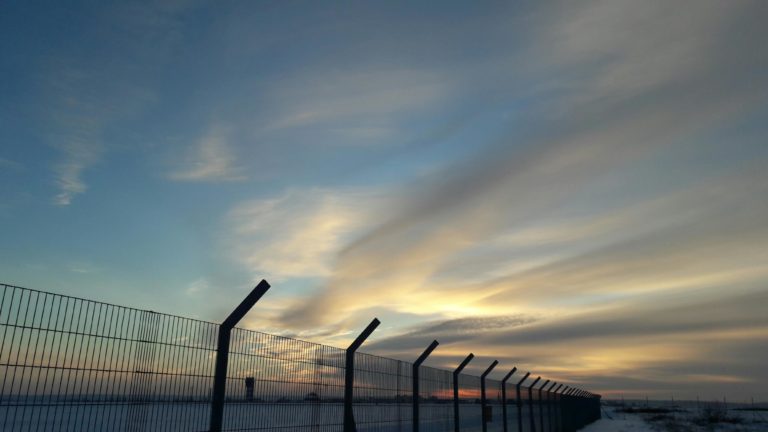Published in the Winter 2023 Newsletter.
The continually changing world demands that we rapidly reshape and redefine our relationships to others in both political discourse and cultural production. And yet the question that comes to mind is, Why do we still fear the other? Jacques Derrida has eloquently observed, “When I open my door, I must be ready to take the greatest of risks” (qtd. in Rosello 12). Mireille Rosello, however, in her book Postcolonial Hospitality: The Immigrant as Guest, notes that “the guest does contain incalculable and unknown futures” (12). Rosello also seeks to explain “[t]he ways in which the state legitimizes some forms of hospitality while declaring others irresponsible, unrealistic, dangerous, or even illegal” (6). What interests me here is what the state calls dangerous or even illegal. What transpires immediately are political and legal ways of defining certain terms such as dangerous individuals or illegal people.
We can talk about genealogies of violence from crossing borders that have produced trauma, chaos, loss, and death. It is possible to examine the devastating impact of migration on the physical and psychic lives of the people in specific parts of the world. Can we confront the disturbing ways that violence and oppression are repeated in the cultural imaginary despite efforts by Black subjects to speak out against this oppression and the invisible violence done to citizens by nation-states? Here I want to discuss a different kind of violence I suffered as I was waiting for a visa for my niece to attend the MLA convention in Philadelphia. As the 2023–24 MLA president, I had to give the Presidential Address, and I invited my niece to come from Cameroon to attend. This invitation was important to me. After my sister passed in 2005, I had raised her. My niece is married now, with four children, and works with the public sector to help people find employment in Cameroon. She was denied a visa and not allowed to cross that border. The border became a symbol of violence for me and her.
To control illegal migration, the United States actively polices its borders. For migrants, these semipermeable barriers are dangerously effective upon the body. Crossing the American border without a visa would render my niece an illegal immigrant. While much damage is done to bodies en route, tactical knowledge of getting by at every step has been highly developed over the years. These borders are socially constructed by the spatial symbols of dominant and “minor” discourses, through the institutionalized procedures of policing and everyday practice. It is possible to read the borders as ethnographies: the transnational trafficking in humans, the dangerous conditions of clandestine sea crossings, the vulnerability of migrant women transported across borders for prostitution, the arrest of migrants by several European coastguards, the detention in overcrowded and underequipped facilities, the establishing of deportation criteria, and the divergent responses of Europeans to the demands placed on their individual societies by rapidly changing demographic realities. Textually, “the border” has been fetishized as an essential division between (to adopt Benedict Anderson’s phrase) “imagined communities” such as nations and identity groups. But the figure also works as a condensed symbol that deals with ambiguous and dangerous interactions between actors in structured, engineered social space. For bodies as sign-vehicles moving in trajectories, borders are constituted in institutionalized and “informal” surveillance, disciplinary and management practices (policing)—whether or not danger and disciplinary procedures are actually experienced.
How the kinship networks and symbiotic migrant circuits constructed over the years have mapped themselves onto sub-Saharan identity and held out against Mediterranean encroachment and violence is a complex question spatially and temporally: it involves both open processes of becoming a migrant worker and the traveler. For once “the Other” seems like useful shorthand for the web of projections that take place; forgotten alien encounters can be called forth from the unconscious for a present situation. And here, the Others may be imagined in all their danger and abjectness. The problem of representing the Other may be invoked before it is evoked, as a constant, generalized problem around which writers are called to position themselves. But if violence is a handy term to use when talking about historical continuity, common interests, and even experiences, we cannot forget the ordering through which categories of domination work on different people.
It is around this implicit question—the extent to which ethnicity can be “managed fairly”—that some or most sub-Saharan Africans construct defensive positions, and certainly their experiences surrounding exclusion (while class specific) are immanent and dangerous. These boundaries, throughout this discussion, tend to sink to the bottom, as if what was meant was that the bottom line about the geocultural region of borders is that it is one among a proliferation of policed borders throughout national territories.
The nation-state, national cultures and economies, and borders are not categories for analysis and interpretation but condensed symbols for social projects constructed and interconstructed on different scales. Actors working with one scale may be blinded, or feign blindness, to other scales: whatever the interest involved, it is tricky to juggle and transpose these social maps. The policed border is functional as a flexible instrument for optimal—mobile and transnational—reorganizations of capitalist production. But denaturalizing and locating experiences of policing are crucial to resisting them and to understanding how we might keep ourselves from becoming instruments of damage to life. Here, I invoke the anticaste thinker B. R. Ambedkar, whose autobiographical extract Waiting for a Visa spoke to the matrices of exclusion inherent in Indian society along the lines of caste. As it is, I am still waiting for the United States to grant my niece a visa to “visit.”
Works Cited
Ambedkar, B. R. Waiting for a Visa. Lector House, 2021.
Anderson, Benedict. Imagined Communities: Reflections on the Origin and Spread of Nationalism. 2nd ed., Verso, 2006.
Rosello, Mireille. Postcolonial Hospitality: The Immigrant as Guest. Stanford UP, 2002.
